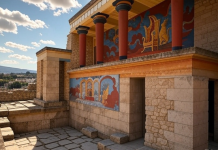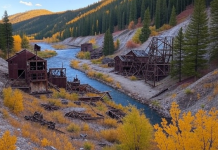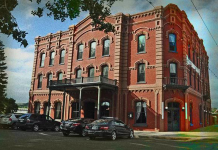Why do we need the electoral college? The need for the Electoral College in the United States can be understood through several historical, political, and practical lenses.
The U.S. is a federal republic where power is divided between the federal government and the states. The Electoral College reflects this by giving states a role in choosing the President, ensuring that the President represents the entire country, not just densely populated areas. This system was designed to balance the influence of large and small states, preventing a scenario where only the most populous states determine the election outcome.
The Founding Fathers were wary of direct democracy, fearing that a majority could consistently overpower minority interests. The Electoral College introduces a layer of indirection, aiming to ensure that the President has broad support across different regions of the country, not just from the majority population centers.
At the time of the Constitution’s drafting, there was significant debate over how to elect the President. The Electoral College was a compromise between selection by Congress and selection by a popular vote. It was also influenced by the need to reconcile the interests of slave states and free states, with the Three-Fifths Compromise affecting the allocation of electoral votes.
While not explicitly intended, the winner-takes-all approach in most states (except Maine and Nebraska) has reinforced a two-party system, which some argue promotes stability by reducing the fragmentation of political power.
In the late 18th century, communication and travel were slow, making it impractical for the entire nation to directly vote for a President in a timely manner. Electors, chosen by various state methods, could deliberate and vote more efficiently.
The Founding Fathers believed that electors would be more informed than the general populace about the qualifications of presidential candidates, acting as a safeguard against uninformed or overly passionate voter decisions.
Candidates must campaign across the country, appealing to a variety of interests rather than focusing solely on urban centers or any single demographic. This ensures that presidential candidates address issues pertinent to rural, suburban, and urban areas alike.
The Electoral College can provide a clear winner in cases where the popular vote might be extremely close or split among multiple candidates, reducing the likelihood of election disputes or the need for runoffs.
On the other side of the argument, the Electoral College has been criticized for several reasons:
The Electoral College can lead to a candidate winning the presidency despite losing the popular vote, as seen in several elections, which some argue undermines democratic principles.
Due to the allocation of electors (based on congressional representation), votes in less populous states can carry more weight than those in more populous states.
Although rare, electors can vote against the popular vote of their state, though this has had minimal impact historically.
Critics argue that with modern technology, the practical reasons for its creation (like communication delays) no longer apply, and direct popular vote could be more representative.
The debate over the Electoral College reflects broader discussions on representation, federalism, and democracy in the U.S., with arguments for its preservation often centered on maintaining the balance of state power and preventing urban dominance in national elections.






